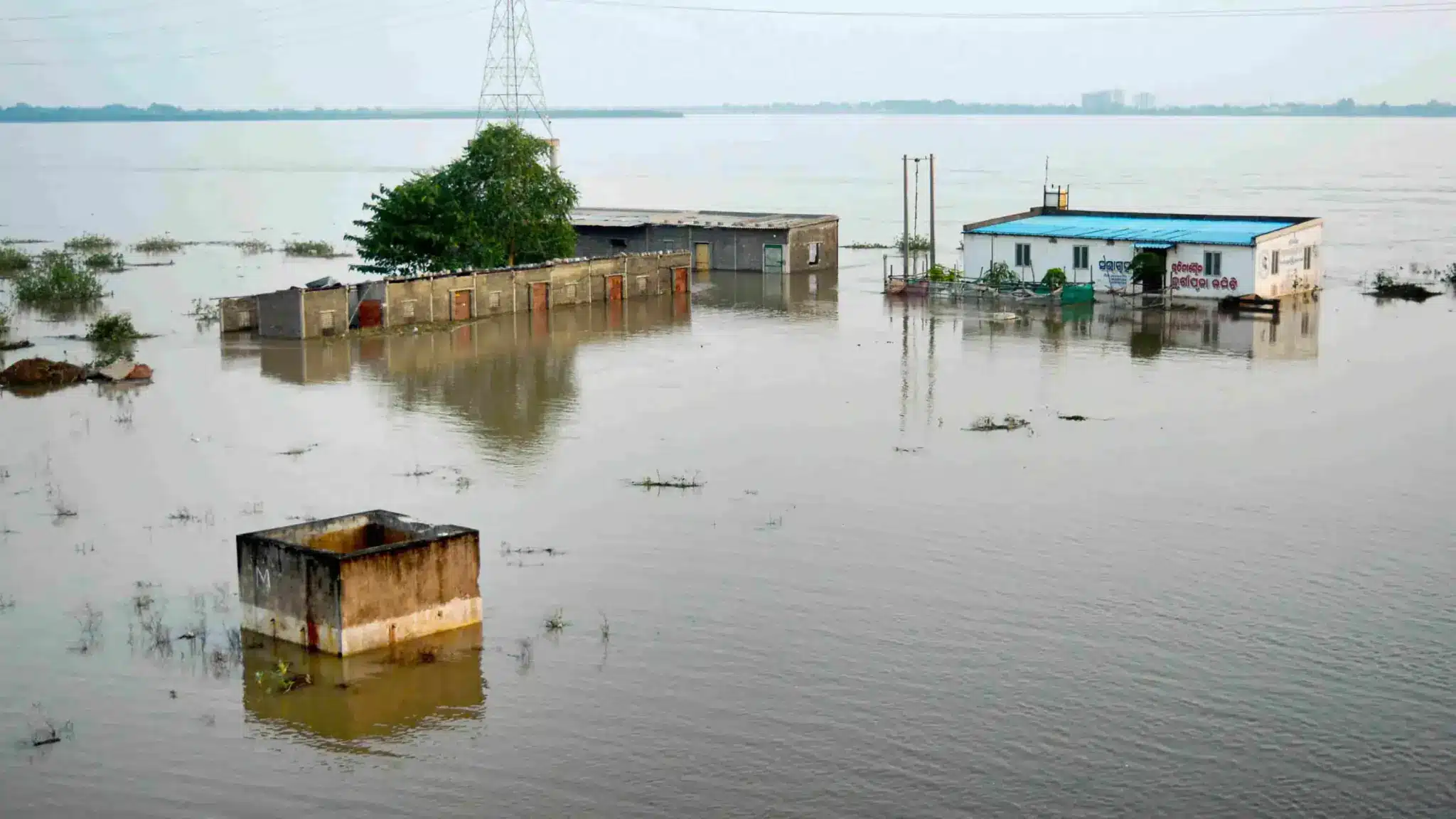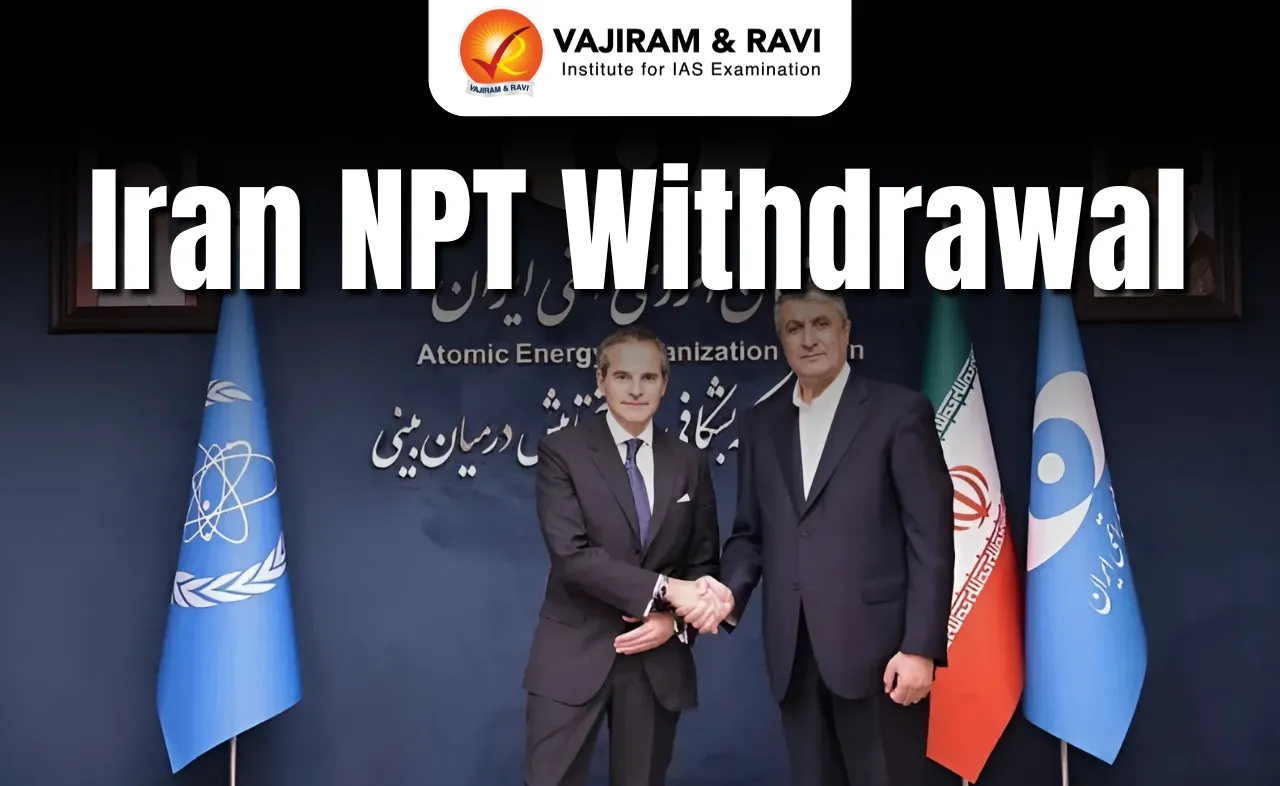What’s in today’s article?
- Why in News?
- What’s the Difference Between Climate Change Mitigation and Adaptation?
- The Economic Survey 2023-24 on Climate Change
- What are the Alternative Approaches of Climate Action?
Why in News?
- The Economic Survey has pointed to flaws and inequities in the global climate action regime and suggested alternative pathways that incorporate lifestyle and behavioural changes.
- It also argued that adaptation should get at least as much importance as mitigation.
What’s the Difference Between Climate Change Mitigation and Adaptation?
- As the climate crisis is increasingly distressing, climate actions fall into one of two broad categories: climate change adaptation and climate change mitigation.
- These terms go hand-in-hand while navigating through the climate crisis, but they mean very different things.
- Climate change mitigation means avoiding and reducing emissions of heat-trapping greenhouse gases into the atmosphere to prevent the planet from warming to more extreme temperatures.
- Climate change adaptation means altering human behaviour, systems, and ways of life to protect societies, economies, and the environment from the impacts of climate change.
- The more are the emissions reduced right now, the easier it will be to adapt to the changes that can no longer be avoided.
- Mitigation actions will take decades to affect rising temperatures, so adapting now to the change will continue to affect us in the foreseeable future.
The Economic Survey 2023-24 on Climate Change:
- Ineffective and inequitable international framework for fighting climate change:
- It is evident from the fact that none of the targets set by the international framework for fighting climate changehas ever been met.
- Developing nations were under undue pressure to attain the 1.5 or 2°C temperature target due to an excessive obsession with this target.
- This has diverted their focus and resources away from the more near-term imperatives of improving the lives of their people.
- Hence, a warmer world is more equitable and resilient than a world in which the 1.5℃ threshold was achieved at all costs.
- However, it is unclear if the Economic Survey is hinting at a potential shift in India’s energy transition trajectory.
- Increasing resilience by giving adaptation as much importance as mitigation:
- This is because the impacts of climate change are already unfolding, and it is becoming increasingly clear that the 1.5°C target will be breached very soon.
- Since climate impacts cannot be stopped, the world must focus on rapid development and adaptation to increase resilience.
- Hence, rapid improvement in incomes and overall well-being of the people is the best insurance against climate change.
- Mitigation by rich and adaptation by developing countries:
- According to the counterargument, at these higher temperatures, the severity of climate impacts will intensify to the point that steps towards increasing resilience would be ineffective.
- Hence, it is proposed that the rich and developed countries do the mitigation work while developing countries focus on adaptation.
- Hypocrisy of the developed world:
- For example, despite having the greatest historical responsibility, the United States has lagged behind other nations in terms of carbon reduction.
- The developed countries as a bloc have not fulfilled any of their emission reduction targets, or their commitments to provide finance or technology to the developing countries.
- Calls for more aggressive climate action have been made in an attempt to shift the blame for these mistakes onto the rest of the world.
- The international climate architecture is more about preserving the existing world order and less about saving the planet.
- For example, the more equitable and effective Kyoto Protocol was eventually replaced by the Paris Agreement.
- Scientific organisations such as the Intergovernmental Panel on Climate Change (IPCC) have strengthened the narrative of the developed countries.
What are the Alternative Approaches Focussing on Climate Change Adaptation?
- Building climate resilient infrastructure:For example, the Central Vista will be a huge improvement over the current set of buildings in the Central Secretariat complex.
- Climate proofing:
- Climate-proofing is the practice of reducing GHG emissions released from the implementation of a certain investment, as well as increasing its resilience to climate change impacts.
- For example, the Smart City mission contains several elements of climate proofing.
- Lifestyle and behavioural changes: For example, India’s Mission Life calls for conscious consumption for the well-being of the planet.
Q.1. What is the Kyoto protocol?
The Kyoto Protocol was an international treaty which extended the 1992 UNFCCC that commits state parties to reduce greeanhouse gas emissions. It was adopted in Kyoto, Japan, on 11 December 1997 and entered into force on 16 February 2005.
Q.2. What is climate resilient infrastructure?
Climate-resilient infrastructure relates to sustainability in that infrastructure that can reliably and efficiently withstand expected and unexpected climate shocks and stresses over its useful life with minimal damage and without failure.
Source: Why Economic Survey argues for climate adaptation, not mitigation | WWF
Last updated on June, 2025
→ UPSC Notification 2025 was released on 22nd January 2025.
→ UPSC Prelims Result 2025 is out now for the CSE held on 25 May 2025.
→ UPSC Prelims Question Paper 2025 and Unofficial Prelims Answer Key 2025 are available now.
→ UPSC Calendar 2026 is released on 15th May, 2025.
→ The UPSC Vacancy 2025 were released 1129, out of which 979 were for UPSC CSE and remaining 150 are for UPSC IFoS.
→ UPSC Mains 2025 will be conducted on 22nd August 2025.
→ UPSC Prelims 2026 will be conducted on 24th May, 2026 & UPSC Mains 2026 will be conducted on 21st August 2026.
→ The UPSC Selection Process is of 3 stages-Prelims, Mains and Interview.
→ UPSC Result 2024 is released with latest UPSC Marksheet 2024. Check Now!
→ UPSC Toppers List 2024 is released now. Shakti Dubey is UPSC AIR 1 2024 Topper.
→ Also check Best IAS Coaching in Delhi























